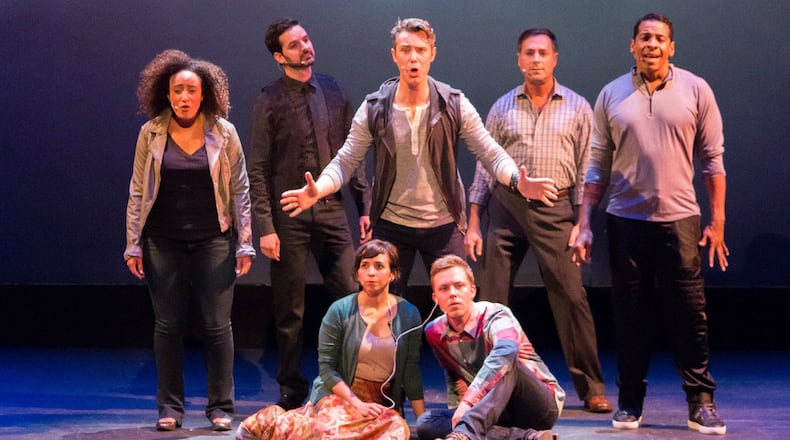The It Gets Better Project travels frequently, meeting LGBT people and hearing their stories. Ultimately, eight of those stories have been selected to be dramatized for the show. Eight members of the GMCLA will portray the storytellers, mixing the narratives with song.
“We have a girl from Ohio this time,” Reinhart said. “She was thrown out of her parents’ house during winter, and she got frostbite walking to a friend’s house. She lived in a storage shed for a little while, and had to leave school. She’s doing OK now, she’s married to her partner and they have two kids, but they both experienced housing difficulties (because of their orientation).”
The GMCLA and the It Gets Better Project are vocal about the fact that they aren’t experts, that their main purpose is to generate dialogue based on personal experiences. Reinhart said that neither of their visits were in response to a particular incident. It’s more that they make their availability known and allow organizations to reach out to them, as Miami did.
“We’re not an immediate solution and fix,” she said. “It’s more about developing and sustaining a cultural change, calling attention to the local work being done. One of the things we do is the World Café, where we bring together students, teachers, clergy, police officers, and parents. A kid will tell a story about something that happened, and people will just be agape, like, ‘that happened at our school?’ A lot of times, people are just unaware of what other people are going through. A lot of eyes are opened.”
Reinhart said that visits by the It Gets Better Project don’t generate much controversy, and there aren’t significant security concerns.
“We’ve been protested a couple of times but no serious opposition,” she said. “We don’t think extensively about security except to be alert and aware.”
Indeed, Reinhart said, support has come from surprising places.
“We were visiting a town in Kansas that had two high schools,” she said. “Gay kids had no way to gather, to communicate with each other, because social media isn’t safe. A rep for the local clergy said he had an all-purpose room in his church that nobody used. So that issue was fixed. We actually rehearse our show in the basement of a church. It’s one of those urban, Gothic churches that have struggled recently, so they decided to open their doors to any community organization that needed a home, and they actually started gaining membership.”
Speaking of the show, Reinhart is quick and eager to point out that it’s a lot of fun, despite the seriousness of the subject matter.
“It’s not depressing,” she said. “The real message is persistence and engagement to change your situation or somebody else’s through small acts of humanity, that with individual acts of confidence, you can push through some horrible moments. That’s the core philosophy. Suicide among the transgendered is still unacceptably high.”
Contact this contributing writer at aaronepple@gmail.com.
How to go
What: It Gets Better Tour, with the Gay Men’s Chorus of Los Angeles
Where: Hall Auditorium at Miami University, 501 E. High St., Oxford
When: 7:30 p.m. Saturday, Feb. 25
Cost: $10-$20
More info: 513-529-3200
About the Author
